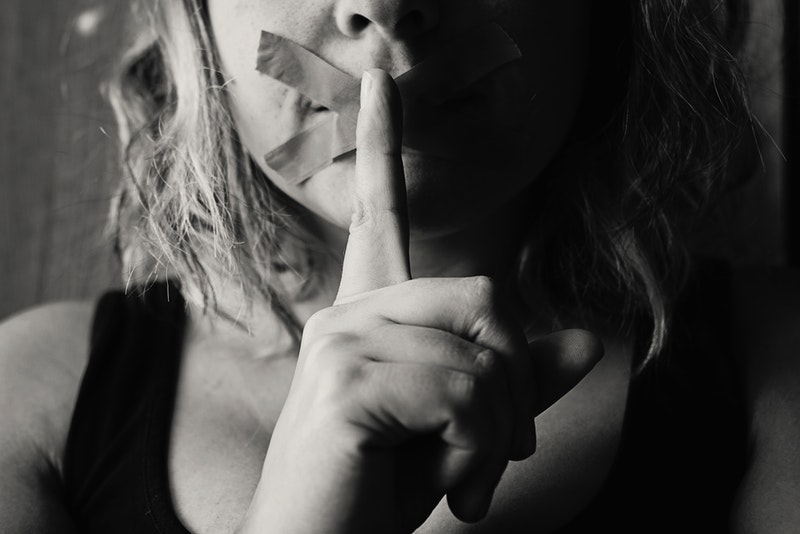At some point or another we’ve all heard these words before:
“Suck it up princess!” “Be a man!” “Stop being a cry-baby,” “Get over it,” “Stop being so sensitive,” “Get thicker skin!”
While these words were likely spoken without consciously intending us long-term harm, they nevertheless point to a common and undeniably tragic truth in our society: that expressing your emotions is a sign of weakness, rather than strength.

Soul Work Compass Course:
Is a vague sense of emptiness lurking beneath the surface? It’s time to reclaim your life. The Soul Work Compass Course helps you break free from self-doubt and repetitive pain. Don’t just survive – thrive by creating a personalized map for your future. Start your journey to profound self-discovery and authentic life direction now.
If you were born into an emotionally repressed culture that valued the “masculine” ideals of efficiency and logic, it is likely that you struggle with some level of emotional numbness.
If you were born into a family that shunned any form of strong emotional expression, it is even more likely that emotional numbing is an issue for you.
And if you experienced an extremely traumatic life event that was simply too overwhelming for you to handle (from which you haven’t recovered), I can almost guarantee that you suffer from emotional numbness.
So how does emotional numbness impact virtually every part of our life? And what advice can I share with you after going through my own struggle with this issue? Keep reading and you’ll find out.
Table of contents
What is Emotional Numbness?

Emotional numbness is a defense mechanism employed by the mind to avoid intense and overwhelming emotions such as fear, hatred, jealousy, and grief. When you go emotionally numb, you lose the ability to feel and experience your emotions on a psychological and emotional level. In this sense, emotional numbness is often clinically connected with dissociation, which is the disconnection from one’s memories, identity, environment, body, or senses.
What Causes Emotional Numbness?

As with most issues, emotional numbness goes back to childhood and the way we were raised by our parents. Being abused by our parents physically, emotionally, sexually, psychologically, or spiritually can contribute towards our inability to self-regulate emotions, which results in emotional numbness. Feeling alienated or disconnected from one or both of our parents, or family at large, can also contribute towards emotional numbness. Being punished whether directly or indirectly for expressing our emotions in childhood also creates emotional numbness.
Numbing our emotions may also start after a severely traumatic experience, such as witnessing acts of violence, being assaulted, experiencing rape, suffering intense loss, or anything that we didn’t have the capacity to psychologically and emotionally handle in the moment. For this reason, emotional numbness is often a symptom of PTSD and various anxiety disorders. You can take our free emotional trauma test to explore this further.
Want to get LonerWolf at the top of your Google search results?
Emotional numbness is also influenced by our culture and wider social circles, particularly those that emphasize being stoic, rational, and emotionally invulnerable (e.g., British, Chinese, American, Russian).
The Danger of Emotional Numbness

If you even have the slightest inkling that you might be emotionally numb, it’s time to listen up. Emotional numbness is not a small character flaw or minor area of self-growth to improve in – it is a serious problem which needs to be addressed immediately.
Speaking from experience, emotional numbness has formed the root of many issues I have faced (and still continue to face) in my life. Due to my upbringing in an emotionally stunted, dogmatically religious family whom I felt disconnected from for the majority of my life, I never learned how to handle strong emotions. I was punished verbally, emotionally or physically anytime I expressed strong emotions, and freethinking or any form of dissent was rejected, resulting in being ostracized.
The combination of having a British father and a mother who was traumatized by her own emotionally unstable mother – on top of an oppressive fundamentalist religion – led to grooming me as a stoic and “stable” person who was taught that expressing emotions was not only bad but shameful.
As you can see, sometimes there are numerous factors at play that may contribute to your inability to regulate intense emotions, and therefore resort to unconsciously numbing them. In my case, I learned that strong emotions = punishment in one form or another, and so I learned that they were dangerous to experience.
The danger of disconnecting from your emotions is that it can lead to a host of mental, emotional, physical, and spiritual issues. Such issues may include dysfunctional coping mechanisms (obsessive compulsions), mild to severe depression, spiritual emptiness, inability to enjoy life, inability to form close and fulfilling relationships, disconnection from inner self, confusion, irritability, fatigue, addictions, chronic illnesses, and somatic illnesses (illnesses produced by the mind).
In extreme cases (and I’m talking about situations where emotional contact is nil), emotional numbness can lead to acts of cruelty.
Why is it ‘the Secret Illness’?
I call emotional numbness the secret illness because it is so pervasive in our society, and so socially acceptable, that it often flies underneath the radar. In a society that largely doesn’t know how to handle strong emotions in healthy ways, being stoic and “level-headed” is valued – yet this very same calm and collected facade often conceals unhealthy detachment from one’s feelings. Thus, emotional numbness is a secret illness because so many of us struggle with it, yet don’t even realize that we have it until chronic issues start emerging.
Download FREE Worksheets!
Go deeper with an emotional numbness journaling prompt + printable meditation mandala!
13 Signs You’re Struggling With Emotional Numbness

Emotional detachment is not always a bad thing. It comes in handy when you need to maintain boundaries, avoid undesired energy overload from others, and even help others in crisis situations. But emotional detachment turns into its unhealthy twin (emotional numbness) when it becomes an automatic inner defense mechanism.
“What’s so great about feeling strong emotions?” you might ask. The answer is that without feeling our emotions, we don’t have the capacity to live and learn from them or experience the beauty and depth of life.
Would you like to save this?
Your information will never be shared.
Here are some of the most significant signs of emotional numbness that you should look out for:
- Inability to express strong negative or positive emotions
- Inability to “fully participate” in life (i.e., feeling like you’re a passive observer)
- Feeling that life is like a dream (a sense unreality)
- Living on autopilot
- Lack of interest in activities others find enjoyable
- Feeling distant from others
- The tendency to withdraw from friends and family members
- Emotions are only felt in the body as sensations, but not by the mind (or else are completely muted in the body and show up only as illness)
- Dislike of people who express strong emotions (both positive and negative)
- Not feeling anything in situations that would usually generate strong emotion
- Panic or terror when strong emotions eventually breakthrough
- Feeling empty inside
- Physical and emotional numbness or “flatness”
In extreme circumstances (such as in PTSD sufferers), emotional numbness may even influence the desire to commit suicide. If you are considering suicide, please seek out support immediately (click here to locate your country’s suicide hotline).
How to Overcome Emotional Numbness

Like any psychological defense mechanism, emotional numbing can be complex to deal with, and often requires support from a trained professional such as a therapist.
If you feel that emotional numbness is significantly impairing your life, please do an act of self-compassion and seek out support either locally or online (there are even free counseling services online such as 7cups).
For the time being, here are some helpful practices which I have personally found to increase my ability to feel, cope with, and express strong emotions:
1. Anchor yourself to your body
As mentioned above, emotional numbing is connected to dissociation (mental disconnection from one part of yourself). In my case, whenever I experience strong emotions, my automatic response is to either (a) only feel the emotions in my body, not my mind, or (b) to have a complete meltdown. In both cases, one of the best self-soothing mechanisms I’ve learned is to anchor myself to my body through mindfulness and physical contact. Similar to what a mother does with her child, I tightly but gently hold one area of my body – usually my hand or stomach. This method helps me to feel contained and grounded in my body.
I also recommend using shapewear or a pressure vest to help you in extremely emotionally turbulent periods to anchor yourself to your body (here is a good example of shapewear). Shapewear is used by women and men to keep “love handles” and other body parts slim and defined. For our purposes, shapewear is like a hug to the body that will help you feel safe and ‘held together.’ Pressure vests are a little more expensive and they are used by people with sensory integration disorders (such as autism) to relax.
2. Deep breathing
Whether used alone or in conjunction with the above-mentioned technique, deep breathing is a simple and easy way to help you mindfully move through whatever you’re experiencing. This practice is particularly useful when intense feelings such as fear or rage break through. There are many books out there that talk about the importance of deep breathing (such as this one), and there are many online tutorials with breathing techniques. I recommend sticking to something simple, something you don’t have to think about too much, and something that doesn’t feel forced. The point of deep breathing isn’t to follow someone else’s technique perfectly, it is to use your breath (in whatever way suits you), to calm your mind and body. Also, I recommend breathing slowly, deeply, and softly instead of forcing deep breaths (which can increase anxiety) – let your breath be natural. Read more about how to relax using deep breathing.
3. Keep a journal of sad thoughts

I realize this suggestion may sound a tad bit melancholic, but it’s a practice worthy of your time and effort, particularly if you’re wanting to feel and express your emotions. Journaling is also a powerful form of shadow work (a way to express what you would usually suppress).
In a physical journal or online diary, spend five to ten minutes every day writing down something which triggers even the slightest pang of sadness in you. For example, you might write down a memory of your dog who died, an issue in the world, something someone said to you, a scene from a movie, a daily struggle … or virtually anything that is upsetting (or what you imagine would be upsetting).
Creating a sad thoughts diary has two main benefits. One, it helps you express your emotions, even if in an indirect way at first. And two, it acts as a catalyst for feeling and letting out your emotions, particularly when you need momentum (I’ll elaborate more on this soon). Learn more about how to journal.
Always try to finish your sad thought journalling with something uplifting, like reading the uplifting news subreddit, spending time with someone you love, playing with a pet, or watching something entertaining on youtube or Netflix.
4. Catharsis (let it all out, baby!)
When emotionally numbing ourselves becomes our default defense mechanism, we tend to have a huge amount of suppressed emotion lying just beneath our conscious awareness. In order to safely and effectively express your suppressed emotions, try some form of catharsis. Catharsis may involve screaming into or punching a pillow, using your sad thoughts journal (mentioned above) to stimulate sadness and crying, intense emotional-fuelled exercise, impassioned dancing, or an active meditation.
Regular catharsis should be a must on your journey. Without regularly ‘letting it all out,’ you run the risk of experiencing the repercussions of festering emotions (i.e., depression, emptiness, chronic illness, etc.).
5. Yoga and self-massage
Yoga is a well-known way of helping to clear and balance your energy. Not only that, but yoga often has a way of releasing emotions stored in the body. I recommend doing slow and gentle forms of yoga such as Hatha yoga for at least ten minutes a day. Remember, the goal isn’t to become some Instagram-perfect yoga star; it is to connect with your body, mind, and heart.
The truth is that our unexpressed and repressed emotions are often stored within our bodies. I like to think of our bodies as being reflections of our unconscious mind: they are maps that help us to figure out what we are keeping locked away, and what unresolved issues we need to face. In my article about chronic muscle tension, I list the nine types of emotions trapped in different areas of the body. In order to release these emotions, I regularly use something called the ‘Acuball’ to introduce fresh blood flow and energy into these tense areas. I like the Acuball because it gives me a deep tissue massage, while also helping me to stay grounded in my body, relax, and release pent-up stress. (You can get the Acuball here).
6. Creatively express your feelings (or lack thereof)
Write a song, doodle in a journal, paint a picture, create a collage, find some way of expressing what emotion you last felt. If you struggle to feel anything at all, express that artistically. Grab those greys and blacks and turn that damn page into your own work of art. Pay attention to how you feel afterward. Does even the slightest feeling of satisfaction enter you? Journal about these emotions.
7. Take care of your inner child
As it was your child self that likely copped the trauma that caused you to default to emotional numbing, take care of this part of you. Practice inner child work and find ways of comforting and nurturing this vulnerable place within you. You may even like to create empowering affirmations for your inner child to help him or her access emotions. For example, you might repeat to yourself when you are in a difficult circumstance, “It is OK for me to feel,” “It is safe for me to feel sad,” “My anger is valid,” “Being vulnerable is being strong,” and so forth.
8. Dedicate space and time to feeling
In our busy lives, it is very easy to numb and distract ourselves with social media, the TV, shopping, food, social commitments, and other things that constantly cause us to look outside. Looking inside is much harder and requires far more self-discipline, hence why most people don’t do it. If you are serious about overcoming your emotional numbness, you will need to dedicate space and time to all of the activities I have mentioned in this article. If you struggle with self-discipline, I recommend making yourself externally accountable by joining a spiritual meditation group or other practice to help you turn inwards. Please don’t skip this step, it is imperative that you spend time exploring your inner self, and in particular, what you are repressing and why.
Emotional Numbness Q&A

Here are some commonly asked questions about emotional numbness. Hopefully they’ll answer any remaining concerns or thoughts you may have about this topic:
The simple answer is trauma. Usually, emotional detachment (or numbness) can be linked to early childhood experiences such as being abused mentally, emotionally, sexually, or physically. However, not everyone who experiences emotional detachment had tough childhoods. Sometimes, other traumatizing experiences later in life can trigger emotional detachment as a protective mechanism (such as divorce, job loss, rape, illnesses, war, etc.).
Yes, emotional numbness can mask intense feelings of anxiety – it’s the mind’s way of protecting itself from being flooded by overwhelming emotions. Numbness is a primal reaction to fear and is also known as the freeze response. There are three main reactions to anxiety-provoking situations that we have: fight, flight, and freeze.
To fix, or rather regain the ability to feel again, it’s important to be gentle with yourself. Try reconnecting with your body, practicing deep breathing, doing some catharsis, journaling, and creating a safe environment for yourself. Seeking out professional support is usually crucial, as emotional numbness is usually a major sign of a traumatized nervous system. To regulate your nervous system, you need a safe holding environment, which a professional therapist/counselor can provide.
***

I hope this article opens up new possibilities for you – or at least inspires you to take emotional numbness seriously.
I can’t emphasize enough how important it is to face this issue because avoiding it will only prolong your suffering.
If this article has helped you, please let me know. It brings me a sense of satisfaction to know that I am helping someone out there somewhere. Also if you struggle with emotional numbness and have other techniques or tools to recommend not mentioned in this article, please comment below. You never know how far throughout this world your advice can spread. :)
Please note that this article has affiliate links. If you decide to purchase anything we link to, we get a small percentage to help with our work at no extra cost to you. Thanks!
Whenever you feel the call, there are 2 ways I can help you:
1. The Soul Work Compass Course: Ready for deep transformation without the fluff? The Soul Work Compass provides a step-by-step path to finding your inner truth and life direction. Heal core wounds, clarify your values, and walk away with a concrete guide for living. Get started now!
2. The Inner Work Journal Bundle: Stop surface-level healing. Dive into the depths with 150+ journaling prompts designed to help you face your demons, heal childhood wounds, and embrace your shadow. Three sacred journals, lifetime access, print as many times as you need. Real transformation starts here.

 $3
$3
This really helped me understand what is going on, Ive been feeling so confused about my lack of emotion but this has really helped me thank you!
I’ve been doing shadow work for a while now, and here I have found a great variety of subjects that I was in need to explore deeper. Thank you for your transparency and authenticity. Each and every article bring me a little close to myself. Thank you Luna and sol
I really appreciated this article as I grew up in a similar environment to what you mentioned. My thoughts and feelings were not asked for or about and after some traumatic experiences – I think my mind was just like “Why bother. Don’t feel it. Protect yourself. You’re fine. You’re not weak.” Doing this work I have found that feeling my emotions can be overwhelming and that that’s a good thing. I’ve held them in for so long. Whenever a coworker or friend tells me they are upset and either want to, or are crying – they want to “dry it up” as soon as possible. I’ve been telling them – “Cry!!! Feel all of it! Let it out.” Some people still see it as weakness – but I feel like you have to feel it all – especially when you are usually or have been completely numb in the past. It’s the first steps to feeling a variety of emotions – for me. Again – thank you so much for this article. I am saving it to look back on when I need this reminder.
I just began to consider emotional numbness as the potential source of so many of my behavioral problems. This is the best article I’ve read on how to work on the problem.
The first thing I do when I don’t understand smth about myself and get worried – I look up what I’m feeling to find recognition. Thank you for writing this/about this, it has helped me understand even better what is happening to my right now. It can get easily confusing when my emotions shift and overwhelm me. I always seem to end up extremely confused about myself. I have always felt lonely about this but I know I’m not the only one. Thanks for sharing this, it makes a difference. Self care is key.
Thank you for helping me be more aware of the numbness I have been denying and providing ways I think will help me move past it!
Hi, thank you so much for writing this article, I wasn’t aware of just how serious my condition was until I did so. I am a sophomore in high school and I have always felt entirely disconnected from the other students my age and have always just shrugged it off, thinking that I was simply more mature and/or laid back. I dislike people with high amounts of energy and tend to act nastily towards them which makes me loathe myself since I feel like I can’t freely express who I am and have people accept me in return. I’m not going to type my entire life’s story and sorry for wasting so much of your time, I’m just relieved that there is both a reason and a solution for my condition. Thank you so much.
I could never talk with someone about it all ..the emptiness the numbness the nights i stay up and think about death and always ask myself why me? And how i wish i was someone else just someone normal with a normal family ..guess certain things we will take to the grave and that’s the reality of things bc nothing gets better it’s just temporary things
This pretty much validated my thoughts on the whole thing. I definately have this issue but it might just be the sign I was looking for, the lack of a sign ah-ha! I’ve done some of these things and I didn’t even know I was on the right path! Thanks a lot!
For a long time I have been struggling with undiagnosed Aspbergers along with a life time if family dysfunction that lead to my five closet family members breaking up. On top if that I have a marriage that’s barely hanging on by a thread and I didn’t know emotional numbness was such a problem. Thank you for this critical information, I’m on a journey to get help with a therapist and I’m hoping to feel alive again, rarely do I feel that so I’m nervous about what’s to come. But I’m ready to stop feeling so numb.